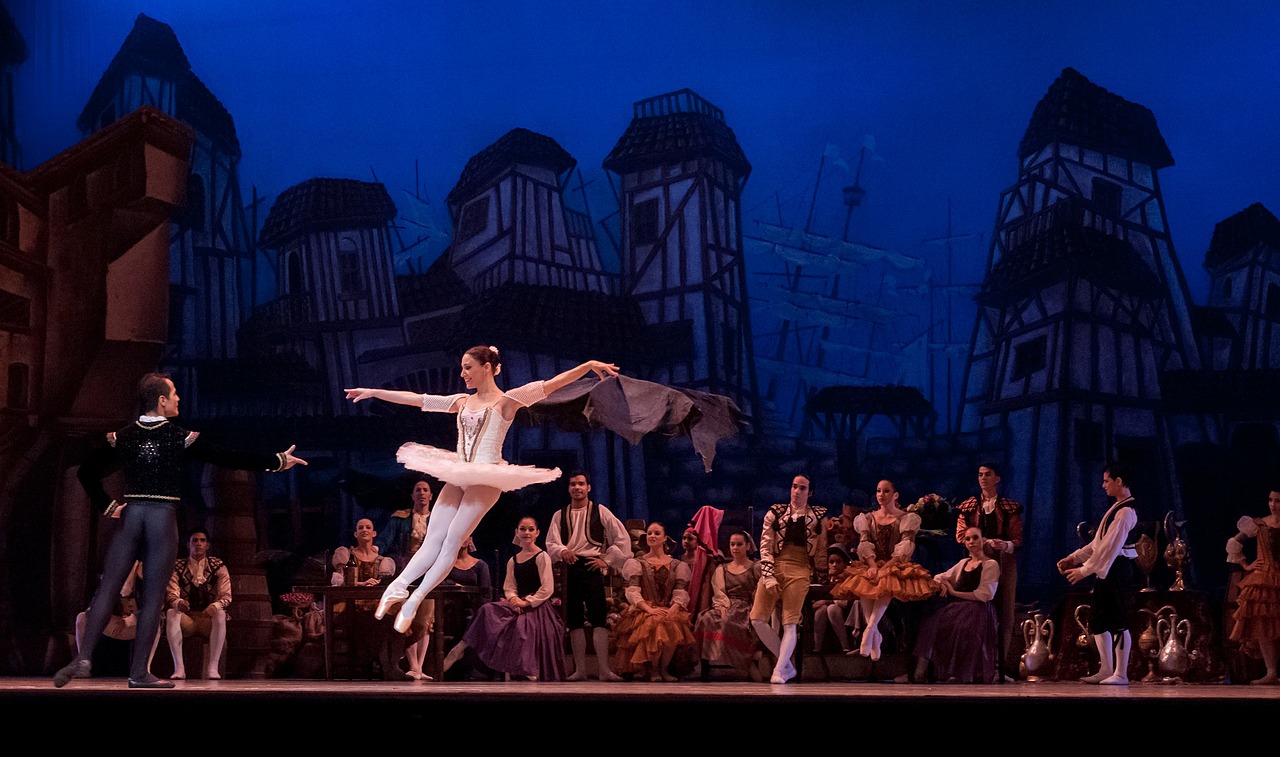The theater scene in Uzbekistan is a rich mix of performing arts forms indigenous to Central Asia (including classical and folk traditions), and Western or European performance disciplines. What makes contemporary Uzbek theatre so exciting is that there is no sharp divide between these two broad traditions; rather, the structure, motifs, and performance techniques of Uzbek and Western theater forms overlap and intertwine, and performers themselves tend to be equally skilled in both traditions. In many ways, the Uzbek theater scene is an excellent reflection of the inclusive nature of Uzbek culture as a whole—for many years, it has absorbed and integrated external influences while still maintaining its individuality.
Uzbekistan’s capital city of Tashkent has more than 10 theaters where opera, ballet, and dramatic works are performed, and each of the main provincial centers has at least one. Some of the most popular theaters include:
The Navoi Theater
Named after the medieval poet Alisher Navoi, Tashkent’s main opera and ballet theater is as well known for its beautiful interior as for the quality of its performances. Completed in 1947, the building is Uzbekistan’s largest theater, dominating one of Tashkent’s main public squares. It was designed by the distinguished and controversial Russian architect Alexey Shchusev, with interior decoration carried out by Uzbek craftsmen overseen by the Bukharan master artisan Usto Shirin Muradov. Some of the decoration includes murals based on scenes from Navoi’s poems. The theater was originally conceived as the home for Uzbekistan’s first musical ensemble, which was an amateur initiative when it was founded in 1923, but became a permanent, professional music and theater company in 1939. Today, the theater showcases a mixed repertoire of Uzbek and international performances.
The Academic Russian Drama Theater of Uzbekistan
The Academic Russian Drama Theater was founded in 1934 by artistic directors Vasily Chirkin and Mikhail Vulkonsky. With this new theater, the directors gathered together some of the best-known and talented local artists of the age, and the company became a vital link between classical Russian drama and new works by emerging Uzbek dramatists. By focusing on contemporary playwrights, the company was able to represent, in dramatic form, some of the most pressing issues affecting Uzbekistan at the time, giving many Uzbeks their first opportunity to see themselves and their lives on stage. Today, the theater offers a mix of different types of performances under the artistic direction of Vladimir Shapiro.
Ilkhom Theater
Founded in 1976 by director Mark Weil, the Ilkhom Theater was one of the first independent (non-state) theaters in the Soviet Union, and it remains a self-supporting organization today. Under Weil’s leadership, the company became known for its experimental, new-wave plays, as well as radically innovative interpretations of the classics; it not only performed in Uzbekistan, but at theater festivals in countries around the world, including in the US, Germany, France, Israel, and Japan. In 1989, the company added a drama school to its activities, and projects from graduating students became part of its regular offerings. The Ilkhom Theater was marked by tragedy in 2007, when Mark Weil was murdered the day before the opening of his production of The Oresteia, but the company continues to operate and honor his legacy.
The Youth Theater of Uzbekistan
Although it has only been known by this name since 1998, the Youth Theater of Uzbekistan has been in operation for nearly a century. The company was founded in 1928; its first production was a dramatization of Harriet Beecher Stowe’s famous novel Uncle Tom’s Cabin. For many years, Russian and Uzbek theater groups were integrated in the company’s operations, but in 1967 Russian productions began to be produced separately under the name of “Tashkent State Russian Theater for Young Spectators.” More changes came in 1991 following Uzbekistan’s independence: Nabi Abdurakhmanov took over the reins as artistic director and brought a newly revitalized vision to the company, which included the establishment of an affiliated School of Dramatic Art. Since 1997, the Youth Theater of Uzbekistan has been a member of the International Association of Children’s and Youth Theaters, and it regularly tours its productions at festivals all over the world.
Tashkent State Musical Comedy Theater
Not surprisingly, the Tashkent State Musical Comedy Theater is one of the most popular theaters in Tashkent, offering musical works and operettas that appeal to a broad range of audience members. Interestingly, however, the uplifting nature of the company seems somewhat at odds with the story of its founder, the renowned Russian dissident and human rights activist Alexander Ginsburg. Ginsburg established the company in 1972 after having completed a sentence of five years of hard labor for spreading anti-Soviet propaganda. However, after just six years of running the company, he fell foul of the authorities again, and in 1979, he was exiled to the United States. Even without his leadership, however, the theater has survived and thrived; today, it regularly draws visitors from all over Uzbekistan.

Sorry, comments are closed for this post.